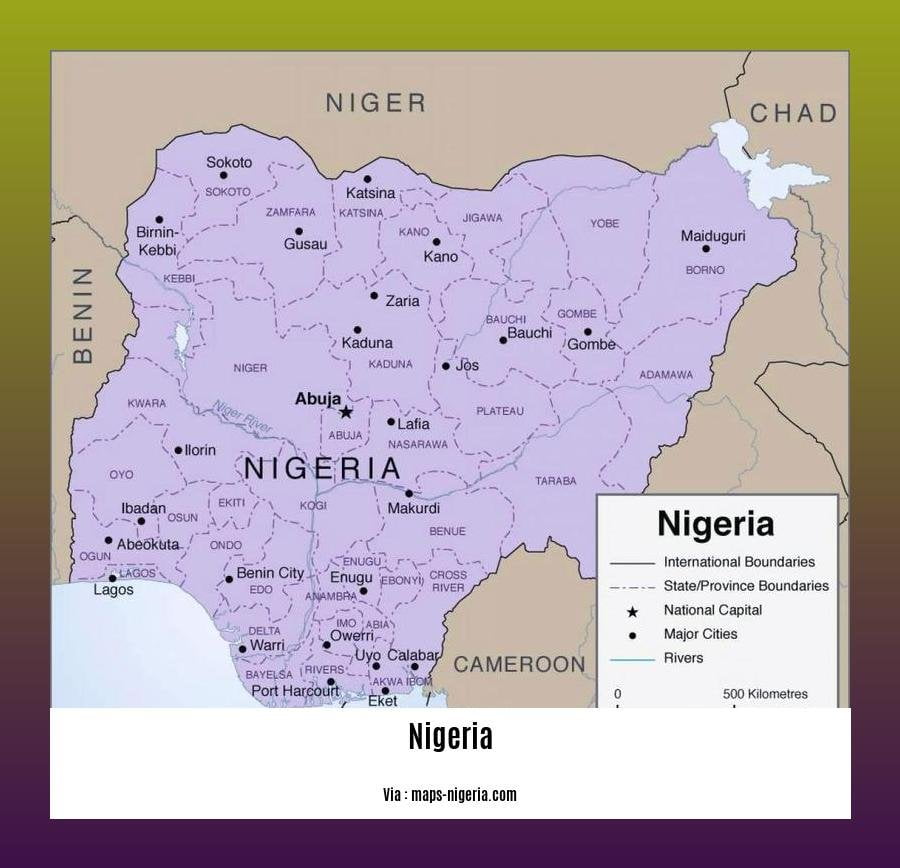Uncovering Common Social Problems in Nigeria: A Comprehensive Analysis
Introduction Abstract Causes of common social problems in Nigeria Solutions to improve Nigeria’s social work practice.
In Nigeria, a vibrant country with a rich cultural heritage and vast economic potential, there exist several pressing social problems that continue to hinder progress and development. From entrenched corruption to persistent poverty, religious conflicts to high unemployment rates, these challenges have far-reaching implications for the well-being and prosperity of Nigerian society. In this comprehensive analysis, we delve into the underlying causes of these common social problems and explore potential solutions to improve Nigeria’s social work practice. By shedding light on these issues, we aim to stimulate meaningful discussions and inspire dynamic strategies towards a more inclusive and equitable society.
Key Takeaways:
- Poverty, unemployment, corruption, examination malpractice, drug abuse, juvenile delinquency, negative impact of science and technology, kidnapping, and cultism are common social problems in Nigeria.
- Nigeria’s rural communities suffer from neglect and lack basic amenities, leading to widespread poverty.
- The country has a high unemployment rate, leaving a significant portion of the population without jobs.
- Nigeria ranks among Africa’s most corrupt countries, according to Transparency International.
- Examination malpractice, including cheating and fraud, is prevalent in Nigeria.
- Drug abuse is a significant problem in Nigeria, particularly among the youth.
- Juvenile delinquency and crime among young people are persistent issues in Nigeria.
- Misuse of science and technology has resulted in challenges such as environmental degradation, cybercrime, and social media addiction in Nigeria.
- Kidnapping for ransom is a major issue, particularly in the southern and northern regions of Nigeria.
- Cultism, with secret societies and gangs engaging in violent and criminal activities, poses a problem in Nigeria.
Sources:
– Borgen Project’s article on “5 Social Issues Dividing Nigeria” (borgenproject.org/social-issues-dividing-nigeria).
– Academic paper titled “Contemporary Social Problems in Nigeria and Its Impact on National” available on Semanticscholar.org (pdfs.semanticscholar.org/e30a/05bed626c587f292f5774…).
Uncovering Common Social Problems in Nigeria

Nigeria, the populous country in Africa, is grappling with numerous social problems that hinder its progress and development. In this article, we will delve into the common social issues plaguing Nigerian society, shedding light on their causes and consequences.
Poverty: A Vicious Cycle
One of the most prevalent social problems in Nigeria is poverty. Despite being a major crude oil producer, Nigeria’s rural communities suffer from neglect and lack essential amenities, perpetuating a cycle of poverty for its inhabitants. The dismal state of poverty in Nigeria not only deprives individuals of basic necessities but also limits their access to education, healthcare, and employment opportunities.
Unemployment: A Crisis of Opportunities
Another pressing social issue in Nigeria is unemployment, with a staggering 27.1% of the population currently jobless. The lack of adequate employment opportunities has created a sense of hopelessness, particularly among the country’s youth. This not only hampers their individual growth but also has severe implications for the country’s economy and social stability.
Corruption: A Systemic Problem
Nigeria is infamous for its pervasive corruption, making it one of Africa’s most corrupt nations according to Transparency International. Widespread corruption undermines public trust, disrupts government functioning, and diverts resources away from critical sectors such as healthcare and education. It perpetuates inequality and hinders the country’s overall progress.
Examination Malpractice: An Erosion of Integrity
Examination malpractice, including cheating and fraud, remains a significant challenge in Nigeria’s education system. This unethical behavior undermines the integrity of academic qualifications, diminishes the value of education, and places honest students at a disadvantage. Addressing this issue is crucial to ensure a fair and merit-based education system.
Drug Abuse: A Youth Epidemic
Nigeria is grappling with a high rate of drug abuse, particularly among its young population. Substance abuse not only poses a significant health risk but also contributes to crime, violence, and social instability. Tackling this issue requires comprehensive efforts from the government, healthcare professionals, and society as a whole.
Juvenile Delinquency: A Threat to Society
The rise in juvenile delinquency, crime, and violence among young people poses a severe threat to Nigerian society. Factors such as poverty, inadequate education, and limited employment prospects exacerbate this issue. Addressing the root causes and providing support systems for at-risk youth is vital to steer them away from a life of crime and violence.
Challenges of Science and Technology: A Double-Edged Sword
While science and technology have led to significant advancements, their misuse has also given rise to social problems in Nigeria. Environmental degradation, cybercrime, and social media addiction are just a few of the challenges facing the country. Striking a balance between harnessing the benefits of technology and mitigating its negative impacts is essential.
Kidnapping: A Growing Threat
Kidnapping for ransom has become a major social problem in Nigeria, particularly in the southern and northern regions. It poses a threat to the safety and well-being of individuals, affects investment and tourism, and challenges the country’s security apparatus. Addressing this issue requires concerted efforts from the government and security agencies to dismantle criminal networks and protect citizens.
Cultism: A Menace to Society
Cultism, secret societies, and gangs engaging in violent and criminal activities, is a significant problem in Nigeria. The influence of cult groups extends to educational institutions and communities, threatening peace and security. Combating cultism requires a multi-faceted approach, including education, community engagement, and effective law enforcement.
In conclusion, Nigeria grapples with a range of common social problems that impede its progress and well-being. Understanding the causes and consequences of these issues is vital for devising effective solutions and creating positive change. It is imperative that all stakeholders, including the government, civil society, and the international community, come together to address these challenges and pave the way for a better future for Nigeria and its people.
Sources:
– Borgen Project: Link to “5 Social Issues Dividing Nigeria” article
– Semanticscholar.org: Link to “Contemporary Social Problems in Nigeria and Its Impact on National” academic paper
Traveling can be an amazing experience, but have you ever wondered about the disadvantages of traveling? Find out more about the potential drawbacks and challenges that come with exploring the world here.
Looking for environmental health jobs in Zambia? Discover exciting opportunities in this field and contribute to the well-being of the environment in Zambia here.
Pakistan is home to some truly breathtaking lakes. Explore the beauty and serenity of the famous lakes of Pakistan and immerse yourself in nature’s wonders here.
Coron Palawan in the Philippines is a true paradise. Uncover fascinating facts about Coron Palawan and get ready to be enchanted by its pristine beaches and stunning landscapes here.
Causes of Common Social Problems in Nigeria

Social problems are prevalent in Nigeria, and understanding their root causes is crucial for developing effective solutions. In this article, we will delve into the causes of common social problems in Nigeria, shedding light on the underlying factors that contribute to these challenges.
Poverty: A Vicious Cycle
Poverty is one of the most pressing social problems in Nigeria, with over 70% of the population living below the poverty line. This pervasive issue stems from a variety of causes, perpetuating a vicious cycle that hampers socio-economic growth.
The lack of access to education plays a significant role in perpetuating poverty in Nigeria. Limited educational opportunities restrict individuals from acquiring the necessary skills to secure well-paying jobs or start successful businesses. Additionally, poor infrastructure in rural areas exacerbates poverty, as it limits access to basic amenities and hampers agricultural productivity, which is a vital source of income for many Nigerians.
Unemployment: A Battle for Opportunities
Unemployment poses a significant challenge in Nigeria. With a staggering 27.1% unemployment rate, the lack of job opportunities creates a breeding ground for social unrest and economic instability. The causes of unemployment in Nigeria are multifaceted, ranging from rapid population growth to inadequate infrastructure and limited investment in key sectors.
Furthermore, the heavy reliance on oil as the main source of revenue contributes to the problem. The oil sector, despite being a major industry in Nigeria, fails to create sufficient employment opportunities due to its capital-intensive nature. As a result, job creation efforts need to diversify the economy, promote entrepreneurship, and invest in sectors such as agriculture and manufacturing.
Corruption: Eroding Trust and Development
Corruption has deeply rooted itself in Nigerian society and poses a severe threat to sustainable development. The misappropriation of public funds, bribery, and embezzlement undermine governance structures and erode public trust in the government.
The causes of corruption in Nigeria are multifaceted, including weak institutional frameworks, lack of transparency, and poor enforcement of anti-corruption measures. Additionally, the lack of accountability among public officials creates an enabling environment for corrupt practices to thrive.
Ethnic Conflicts: A Struggle for National Identity
Nigeria is a nation with diverse ethnic groups, but this diversity often leads to ethnic conflicts that exacerbate social problems. These conflicts arise from deep-rooted issues such as inequality, marginalization, and limited access to resources.
The struggle for national identity in Nigeria is also fueled by these conflicts. Ethnic tensions and a high level of poverty contribute to a sense of disunity and hinder efforts to foster a collective Nigerian identity. Addressing ethnic conflicts requires promoting inclusivity, ensuring equitable distribution of resources, and fostering national cohesion through dialogue and reconciliation.
Terrorism: The Menace of Boko Haram
Terrorism, particularly the activities of the extremist group Boko Haram, has had devastating effects on Nigeria. The Boko Haram insurgency is driven by a complex web of factors, including violent extremism, poverty, unemployment, and socio-political grievances.
Addressing the root causes of terrorism requires multifaceted strategies that encompass counter-terrorism efforts, socio-economic development, and community engagement. By tackling the underlying factors that fuel extremism, there is a greater chance of resolving the terrorism issue and fostering peace and stability in Nigeria.
Key Takeaways:
- Poverty in Nigeria is perpetuated by factors such as limited education access and poor infrastructure.
- Unemployment is a result of various factors, including rapid population growth and reliance on the oil sector.
- Corruption undermines governance and development in Nigeria, stemming from weak institutions and lack of accountability.
- Ethnic conflicts arise from issues like inequality, marginalization, and limited resource access, hindering national unity.
- Terrorism, led by Boko Haram, is driven by factors such as violent extremism, poverty, and socio-political grievances.
Citation:
– ResearchGate: SOCIO-ECONOMIC PROBLEMS IN NIGERIA: CAUSES AND REMEDY
– Edoaffairs: Top 5 Common Social Problems In Nigeria (2023)
Solutions to Improve Nigeria’s Social Work Practice
The social work practice in Nigeria faces numerous challenges that hinder its effectiveness in addressing social issues. Limited resources, poor funding of education and welfare programs, and the lack of recognition of social work as a professional calling are among the major obstacles. However, there are potential solutions that can help improve Nigeria’s social work practice and enhance its impact on society.
Increased Funding and Resources
One of the primary solutions to enhance Nigeria’s social work practice is to advocate for increased funding and resources. Currently, there is a lack of financial support for social work education and welfare programs. This shortage of funds hampers the growth and development of social work initiatives and limits social workers’ ability to provide necessary services to vulnerable populations.
By pushing for increased funding from the government, individuals, and other organizations, the social work sector can receive the resources it needs to expand and improve its services. This includes allocating funds for comprehensive social work education programs, which can equip social workers with the necessary skills and knowledge to address the complex social issues plaguing Nigerian society.
Quality and Locally Relevant Social Work Education
Another crucial solution is to focus on providing quality and locally relevant social work education. Currently, Nigeria lacks a robust system of social work education that meets the specific needs of the country. This undermines the legitimacy of the profession and disconnects social workers from local families and communities.
To address this, efforts should be made to develop and implement high-quality social work education programs that are tailored to the Nigerian context. This involves collaboration between academic institutions, professional bodies, and experienced social workers to design curricula and training modules that reflect the unique challenges and cultural nuances of Nigerian society.
Official Recognition of Social Work as a Profession
The lack of recognition of social work as a professional calling is another significant challenge. Currently, there is no specific law or bill that establishes social work as an officially recognized profession in Nigeria. This absence of recognition limits the professional status and influence of social workers, hindering their ability to advocate for policy changes and improvements in the field.
To address this issue, it is essential to lobby for the passage of a bill that recognizes social work as a distinct and valuable profession in Nigeria. Such legislation would provide social workers with the professional recognition and support they need to effectively address social issues and contribute to the well-being of Nigerian society.
Key Takeaways:
- Increased funding and resources are crucial to enhance Nigeria’s social work practice, as limited resources currently hinder the growth and provision of necessary services.
- Quality and locally relevant social work education is essential to ensure social workers are equipped with the necessary skills and knowledge to address Nigeria’s complex social issues.
- Official recognition of social work as a profession would enhance the professional status and influence of social workers, enabling them to advocate for policy changes and improvements in the field.
Sources:
Africa Social Work Network (ASWNet). (2022, August 6). 6 Challenges of Social Work in Nigeria: A policy agenda. Retrieved from Link
Oxford Academic. (2021, August 20). Public Perceptions of Social Work in Nigeria: Does the Profession Matter?. Retrieved from Link
FAQ
Q1: What is the focus of the article “Uncovering Common Social Problems in Nigeria: A Comprehensive Analysis”?
A1: The article focuses on providing a comprehensive analysis of common social problems in Nigeria.
Q2: What are some of the social problems discussed in the article?
A2: The article addresses social problems such as poverty, unemployment, corruption, examination malpractice, drug abuse, juvenile delinquency, negative impact of science and technology, kidnapping, and cultism in Nigeria.
Q3: What are the causes of these social problems in Nigeria?
A3: The causes of these social problems in Nigeria include poverty, unemployment, bad government, illiteracy, greed, lack of parental care, corruption, inequality, tribalism, and the negative impact of science and technology.
Q4: Does the article propose any solutions to improve Nigeria’s social work practice?
A4: Yes, the article discusses potential solutions to improve Nigeria’s social work practice, such as job creation, improving parental care, fighting greed, and implementing measures to reduce poverty and corruption.
Q5: Are there any challenges faced by social workers in Nigeria?
A5: Yes, social workers in Nigeria face challenges such as limited resources, poor funding of education and welfare programs, the lack of recognition of social work as a professional calling, and the lack of quality, locally relevant social work education.
- Red Cloud, NE: Discover Willa Cather’s Legacy - April 11, 2025
- Remember Old Social Media Sites? Their Rise and Fall - April 11, 2025
- How many days till Feb 3?Accurate Countdowns & Tools - April 11, 2025
















